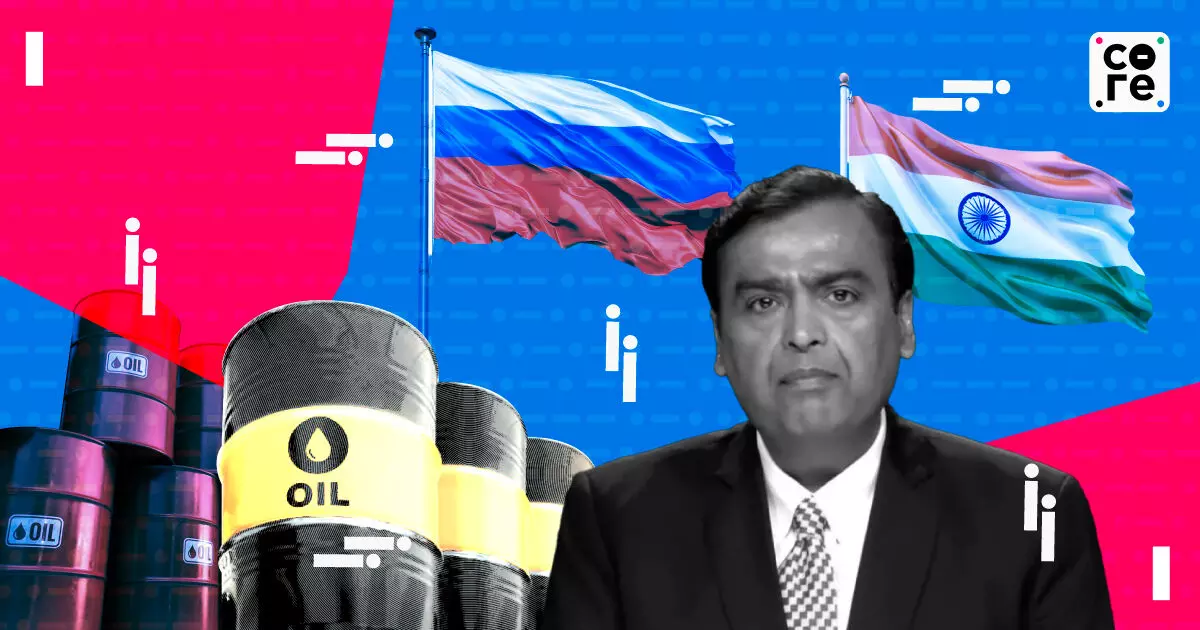
Ambanis Caught In Crossfire As US Continues To Pressure India On Oil
US Treasury chief Scott Bessent slammed India’s Russian oil buys, hinting at Ambanis and calling its reselling “unacceptable.” What’s behind the attack?

US treasury secretary Scott Bessent on Tuesday accused India of profiteering from its increased purchases of Russian oil during the war in Ukraine, saying the US viewed it as “unacceptable”.
Speaking to CNBC’s Squawk Box on Tuesday, Bessent noted that Russian oil now makes up 42% of India's total oil purchases — a sharp jump from under 1% before the war — and contrasted with longtime buyer China, whose buys saw a modest jump from 16% to 13%.
"India is just profiteering. They are reselling," Bessent said. "What I would call Indian arbitrage — buying cheap Russian oil, reselling it as product has just sprung up during the war — which is unacceptable.” He added that some of the richest families in India have made as much as $16 billion in excess profits.
This follows trade advisor Peter Navarro's comment that India is 'a global clearing house for Russian crude' and that the proceeds flow to ...
US treasury secretary Scott Bessent on Tuesday accused India of profiteering from its increased purchases of Russian oil during the war in Ukraine, saying the US viewed it as “unacceptable”.
Speaking to CNBC’s Squawk Box on Tuesday, Bessent noted that Russian oil now makes up 42% of India's total oil purchases — a sharp jump from under 1% before the war — and contrasted with longtime buyer China, whose buys saw a modest jump from 16% to 13%.
"India is just profiteering. They are reselling," Bessent said. "What I would call Indian arbitrage — buying cheap Russian oil, reselling it as product has just sprung up during the war — which is unacceptable.” He added that some of the richest families in India have made as much as $16 billion in excess profits.
This follows trade advisor Peter Navarro's comment that India is 'a global clearing house for Russian crude' and that the proceeds flow to India's politically connected energy titans, into Russian president Vladimir Putin’s war chest.
Reliance In The Spotlight
First, while the global oil trade might be somewhat murky — given how, for example, sanctioned oil tends to move around the world — oil-to-chemicals major Reliance Industries is one of the most visible and publicly traded companies in India.
Second, exporting diesel or jet fuel from imported crude has been its strategy since its first refinery was set up in Jamnagar on the western coast of India 25 years ago.
The reason why the refinery was set up on the coast — unlike refineries owned by public sector giants like Indian Oil Corporation, which are largely inland — was precisely to import crude and export product.
Over time, Reliance, which controls 25% of India’s refining capacity, has helped cut India’s dependence on petroleum product imports, like petrol or diesel as have like other refining majors like Indian Oil and Hindustan Petroleum.
India still continues to import over 80% of its crude requirements, but the refining and value addition, for domestic consumption and exports, happen on Indian soil.
Reliance’s profits for all its businesses over the last three years — including oil to chemicals, telecom and retail — roughly add up to around $25 billion.
So the $16 billion figure that Bessent mentioned either might be an accurate depiction of Reliance, or might refer to the profits of other refining companies as well.
US Is A Different Ballgame
But the details do not matter so much.
Because Bessent has clearly taken aim at the Ambanis, and thus a businessperson seen as close to the government.
In doing so, maybe he is equating them to Russian oligarchs, typically very rich businessmen close to the Kremlin, whose initial riches came from the privatisation of state-owned enterprises in Russia in the early to mid 1990s under then president Boris Yeltsin.
Whatever Bessent’s intent, this specific attack does signal a further deterioration in US-India relations, at least at this point.
It is strange that Bessent — who has managed money for over 40 years and has worked with the Soros Fund Management as chief investment officer until 10 years ago — would highlight profits made by Reliance’s owners as unacceptable.
Attempting to squeeze logic from the battery of statements we have seen in recent days might be futile, but it is evident that there is a continuing problem — the friction between India’s Prime Minister Narendra Modi and US President Donald Trump, the reasons for which may go back to the period just before Trump got elected.
As various foreign affairs experts in the know have told us, this has to be resolved at the top.
While we await that, the Ambanis have a new problem to grapple with.
As many in business and politics are realising, you can get many things done in India, but facing the might of the United States is a different ballgame altogether.
US Treasury chief Scott Bessent slammed India’s Russian oil buys, hinting at Ambanis and calling its reselling “unacceptable.” What’s behind the attack?

